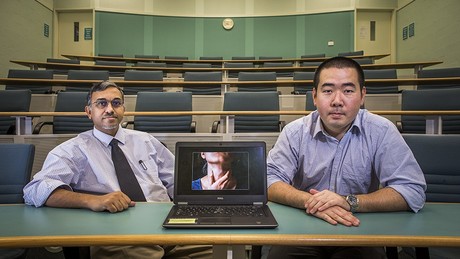Thyroid cancer is being overdiagnosed

Researchers from The Australian National University (ANU) have found that doctors around the world are overdiagnosing the most common thyroid cancer, creating an artificial epidemic that costs billions of dollars each year in unnecessary medical costs.
Writing in the Journal of Clinical Oncology, the study authors noted that incidence of differentiated thyroid cancer (DTC) has been reported to have increased three- to fifteen-fold in the past few decades. This is despite no change to the disease’s low death rate, as DTC mainly involves papillary and follicular tumours that don’t usually progress to clinical forms of cancer.
“Overly meticulous examinations are detecting the condition in the early stages and resulting in unnecessary surgeries,” said lead researcher Associate Professor Suhail Doi. These surgeries have substantial consequences for patients — most must receive lifelong thyroid-replacement therapy and some have complications from the procedure, including damage to nerves and surrounding glands.
Analysing international autopsy data over six decades from 1949, Dr Doi and his colleagues found that incidental DTC has remained unchanged, confirming for the first time that the ‘epidemic’ has in fact been driven only by increasing detections of cancer. Their study found the following global trends:
| Country | Period | Increase |
| Australia | 1982–2012 | Three times in women and two times in men |
| United States | 1975–2013 | Three times |
| Canada | 1986–2015 | 4.5 times in women and three times in men |
| United Kingdom | 1979–2013 | Three times |
| South Korea | 1993–2011 | 15 times |
Dr Doi said the findings will inform clinical guidelines around the world on appropriate treatment for DTC, and also help to educate the public about the condition.
“People with this type of thyroid cancer can sometimes live until normal life expectancy and usually die from other causes, so there is no point intervening if the cancer is acting in a benign way and not causing any problems,” he said.
“Active monitoring rather than intervention is appropriate in many cases, similar to how doctors treat prostate cancer today.”
The team’s results will be presented at the 2016 International Preventing Overdiagnosis Conference, to be held in Barcelona from 20–22 September.
Retinal health linked to dementia risk, study shows
Researchers have discovered that the blood vessels at the back of the eye — called retinal...
Pancreatic cancer hijacks metabolism switch to help it spread
Pancreatic cancer hijacks a molecule known for regulating physiological processes, such as food...
Novel antibiotic activates 'suicide' mechanism in superbug
Researchers have discovered a new class of antibiotic that selectively targets Neisseria...




